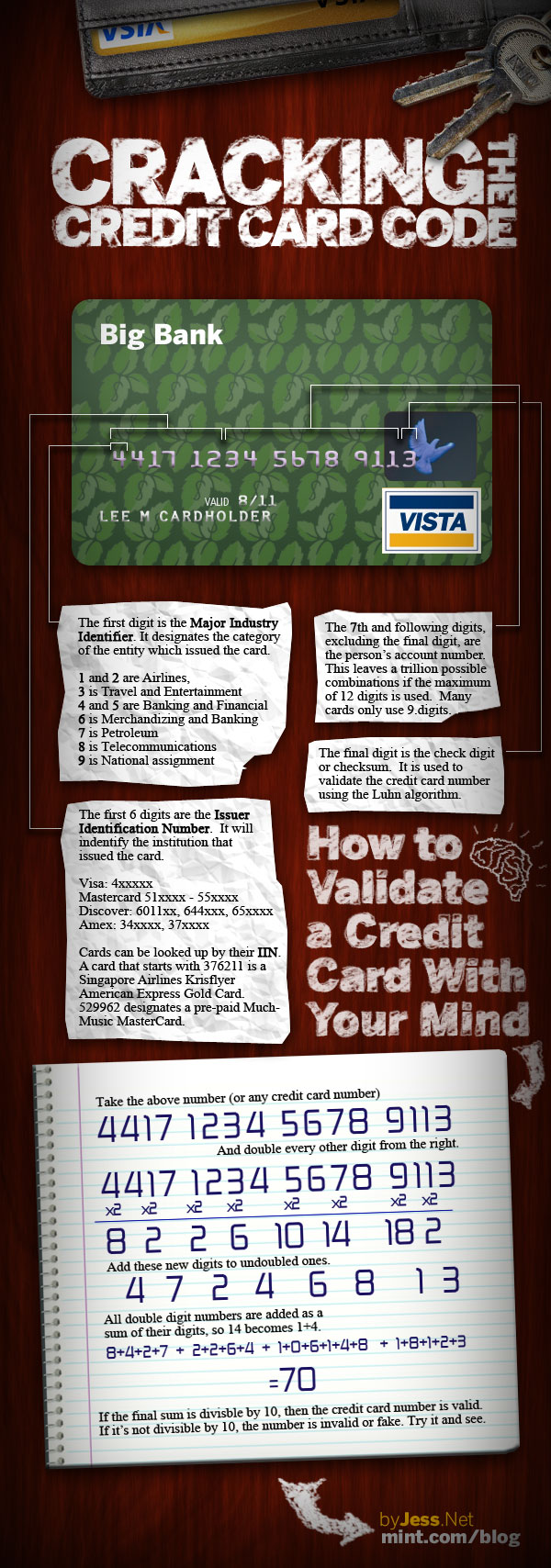
Please enter a card number for testing. Numbers are not stored on the server. However, for your own safety avoid using real card numbers, just in case your transmissions are intercepted.
Only positive integers are considered, so you may include dashes, spaces, or other characters to visually break up long numbers, but they will be ignored.
CCV Test currently lives at http://WillMurraySoftware.com/incubator/ccv/index.php, part of Will Murray (Willscrlt) Software.
DATE VERSION DETAILS 2014-Mar-05 1.0.0 Initial release Last modified: 2014-Mar-05 07:03:55 PST
"CCV" on this pages means "Credit Card Validation". It's a "quick and dirty", single-page PHP project created by Will Murray. I created it to prototype credit card validation, and I plan to translate it into other languages just for the practice. It applies some basic algorithms to an input string (presumably a credit card number or something like it). If all the tests pass, there's a fairly good chance that the given number could be a valid card number. However, there are over a trillion possible account numbers per issuers and lots and lots of issuers, so the chance of picking a usable card number at random is pretty low. Add to that the fact that you would still need to know the associated card's expiration date, its CVV2 code, and probably the account holders name, billing address, and telephone number, so it really should not be all that helpful to an identity thief. That being said, I encourage you not to enter one of your real credit or debit card numbers into this form. I don't store the information you submit, but it could be intercepted along the way, and then... well... We don't want to think about that. Just don't do it, okay? :-)
The infographic below shows the basics of credit card number validation. I gathered additional information from the bank card number and Luhn algortithm articles on Wikipedia. Since these are not authoritative sources, I would not put a lot of faith into the results of this utility. Also, this only tells you if a given number is likely to be be a valid card. While it will catch many common mistakes, it's definitely not foolproof (a weakness in the Luhn algorithm, not to mention likely incomplete and outdated information from my limited sources). If you wanted to adapt this into something more robust, you would need to do a lot more research into properly validating payment card numbers. This is just a fun little utility to play around with and test various combinations of numbers. Have fun and play safely!